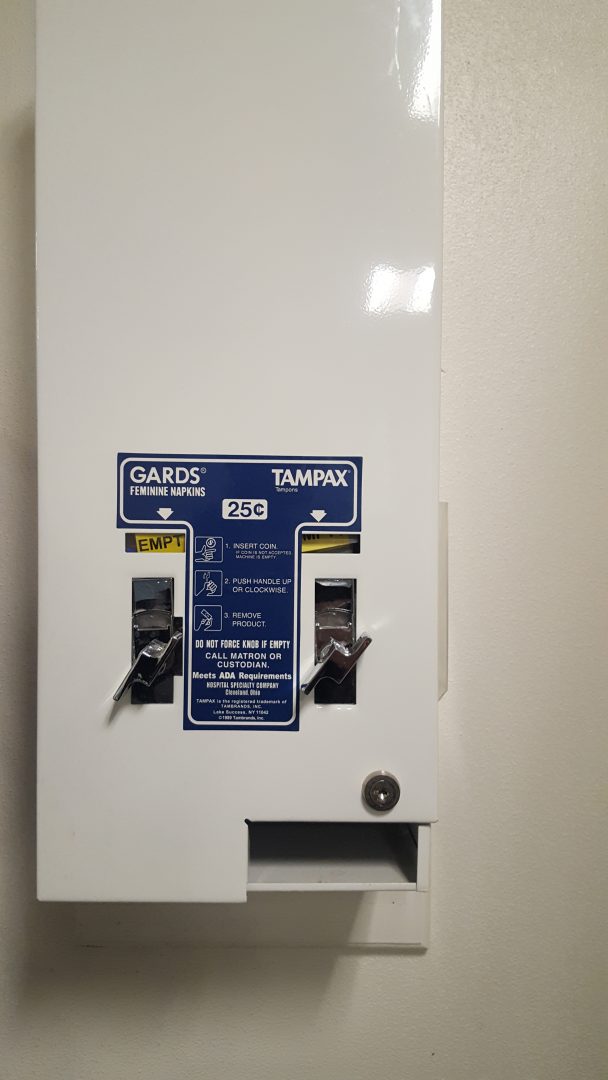
Lewis & Clark lacks a comprehensive program to provide Feminine Hygiene Products on campus. The portion of the student body who menstruate are provided with inadequate, oftentimes non-functioning 25 cents per tampon machines in some bathrooms on campus. This dysfunctional system lacks a comprehensive approach to meet the needs of our student body as well as staff, teachers and visitors.
Two of my classmates and I are collaborating on a proposal as to why we should have free feminine hygiene products on campus, as framed as an ethical issue. Reasons ethics can be applied to this problem of lack of supplies for those who menstruate is this: menstruation is a basic biological bodily function that cannot be controlled by the person menstruating (or, at least, not controlled very well). It is a bodily function that requires supplies. Just as human beings are provided free toilet paper in all public and private bathrooms, so should menstruation products be provided. The reason there is a stigma around menstruation products is unclear. It could be a sexist problem; charging the involuntary bodily functions of (but not always, of course) women.
In contrast to the undergraduate facilities, Lewis & Clark Law School has taken a more ethically balanced and humane approach to the problem through its policy and program of free menstrual products by providing tampons in every bathroom. This ethical issue has also found a pragmatic solution on a larger, national scale beyond our campus. Mayor Bill de Blasio of New York signed legislation in 2016 making menstrual products in all of New York City free at all public schools, shelters and jails. Mayor Bill de Blasio said: “There should be no stigma around something as fundamental as menstruation,” and then later, “These laws recognize that feminine hygiene products are a necessity ― not a luxury.”
This is an important quote, to really underscore the important ethical issue relating to the availability of these products. Despite national progress, our current campus situation fails to meet the ethical requirements of its campus population.
The Student Health Center explains that they have tampons available to members of the community “in emergency situations.” However, because they are supplied through product promotions, the supply is unreliable, irregular and infrequent. This is a poignant example of why a new ethical policy must be put into place. We posed several questions to the representative of the Student Health Center about the lack of provided products on campus. Ignoring all of our questions, they provided a simple response: “to check with the Feminist Student Union” on Campus. As great as FSU is, they just don’t have the budget for the demands we are asking. So, we press on with our proposal. A survey of the student body proved very beneficial, a strong show of support was demonstrated by the student body in favor of free feminine hygiene products. We are now creating a petition, and will continue research within and around the school administration to find out what it is that’s really necessary to incite change, and achieve an ethically responsive program.
Subscribe to the Mossy Log Newsletter
Stay up to date with the goings-on at Lewis & Clark! Get the top stories or your favorite section delivered to your inbox whenever we release a new issue.

Leave a Reply